Contents
Introduction
John Teasdale is a prominent British psychologist renowned for his influential work in the field of cognitive therapy and mindfulness-based interventions. He is best known for co-developing Mindfulness-Based Cognitive Therapy (MBCT), a groundbreaking therapeutic approach that integrates mindfulness practices with cognitive-behavioral therapy (CBT) to help individuals prevent the relapse of depression. His pioneering research has had a profound impact on understanding the relationship between thought patterns, emotion regulation, and mental health.
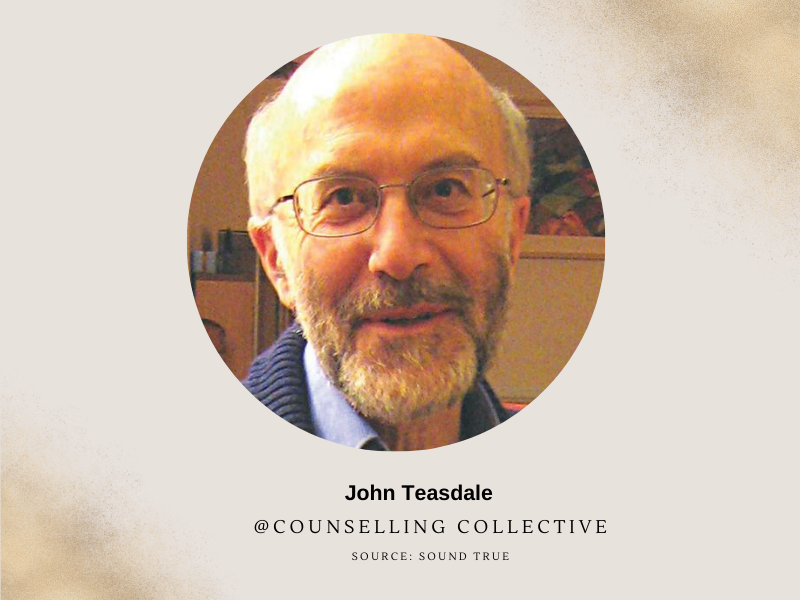
Teasdale’s work has also contributed significantly to the broader field of cognitive science, particularly in studying how mindfulness can improve emotional well-being. This article explores Teasdale’s life, major contributions to psychology, and the lasting influence of his work on mindfulness, cognitive therapy, and mental health interventions.
Early Life and Education
John Teasdale was born in 1944 in England, where he cultivated a profound interest in the complexities of the human mind. His curiosity focused on how thoughts and emotions interact to shape mental well-being. Early on, Teasdale’s academic interests were influenced by a desire to understand the role of cognitive processes in emotional experiences. This foundational curiosity guided him throughout his academic and professional journey, leading to significant contributions in cognitive psychology and mindfulness-based approaches to mental health.
Image Source: guilford.com
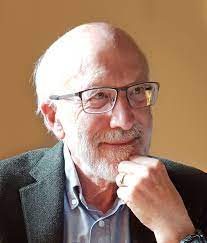
Educational Journey
| Aspect | Details |
|---|---|
| Undergraduate Education | Teasdale earned his undergraduate degree in Psychology from Cambridge University, where he was introduced to the cognitive revolution and began exploring the connection between thought processes and emotional regulation. |
| Graduate Studies | He pursued his Ph.D. in Experimental Psychology at Oxford University, focusing on cognitive mechanisms underlying depression. His work examined how negative thoughts and cognitive distortions contribute to emotional disorders. |
| Postdoctoral Work | After completing his Ph.D., Teasdale engaged in postdoctoral research on cognitive therapy and depression. His work during this period further refined his understanding of how cognitive patterns influence mood regulation and mental health outcomes. |
| Academic Positions | Teasdale has held various academic positions, including a long tenure at the Medical Research Council (MRC) Cognition and Brain Sciences Unit in Cambridge, where he conducted groundbreaking research on depression, mindfulness, and cognitive therapy. |
Influences and Early Career
| Aspect | Details |
|---|---|
| Aaron T. Beck | Teasdale was heavily influenced by Aaron T. Beck, the father of cognitive therapy. Beck’s work on cognitive distortions and how they contribute to depression provided the foundation for Teasdale’s exploration of cognitive approaches to mental health. |
| Cognitive Therapy | Teasdale’s early career focused on advancing the field of cognitive therapy, where he sought to understand how cognitive patterns could be modified to alleviate symptoms of depression and prevent relapse. |
| Mindfulness Practices | Teasdale’s later work was influenced by Jon Kabat-Zinn, whose development of Mindfulness-Based Stress Reduction (MBSR) inspired Teasdale to incorporate mindfulness practices into cognitive therapy, leading to the creation of Mindfulness-Based Cognitive Therapy (MBCT). |
| Cognitive Science | Teasdale was part of the broader cognitive science movement that sought to understand how mental processes, such as thought patterns and attentional control, influence emotional states. |
| Clinical Psychology | Teasdale’s clinical work with patients suffering from chronic depression provided him with firsthand experience of the limitations of traditional cognitive therapies, motivating his pursuit of more integrative approaches to emotional regulation. |
Major Theories and Work
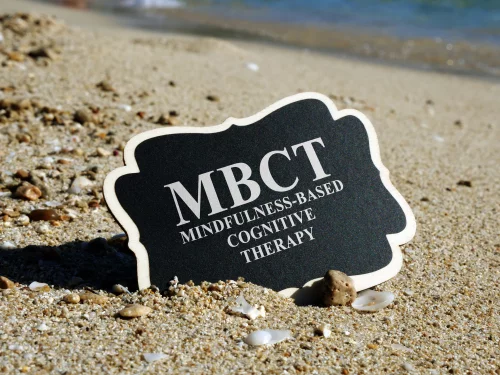
Mindfulness-Based Cognitive Therapy (MBCT)
John Teasdale is best known for co-developing Mindfulness-Based Cognitive Therapy (MBCT), a therapeutic approach designed to prevent the relapse of depression by combining cognitive-behavioral techniques with mindfulness practices.
- Key Components: MBCT teaches individuals to become more aware of their thoughts and feelings without becoming overwhelmed by them. Through mindfulness practices, patients learn to observe their thoughts non-judgmentally, reducing the tendency to ruminate on negative thoughts, which often leads to relapse in depression.
- Effectiveness in Preventing Relapse: Teasdale’s research demonstrated that MBCT is highly effective in preventing relapse in individuals with a history of recurrent depression.
Image Source: online-psychology-degrees.org
Before developing MBCT, Teasdale was known for his work in cognitive therapy and its application to depression.
- Cognitive Vulnerability: Teasdale’s work on cognitive vulnerability showed how individuals with depression are more likely to engage in negative thinking patterns that perpetuate their depressive symptoms. His research emphasized the need to intervene at the cognitive level to break the cycle of negative thinking and emotional distress.
- Cognitive-Behavioral Interventions: Teasdale’s early clinical work involved using cognitive-behavioral interventions to help individuals challenge their automatic negative thoughts and replace them with more realistic, adaptive thinking patterns.
Image Source: atriskyouthprograms.com

Cognitive Therapy and Depression
Famous Books and Publications
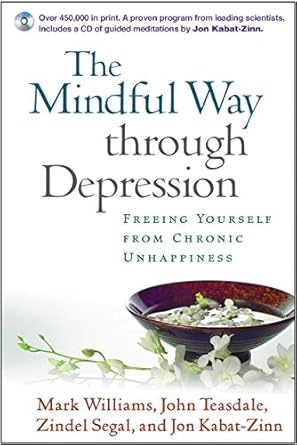
The Mindful Way Through Depression
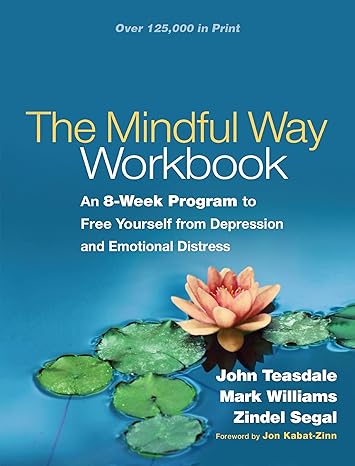
The Mindful Way Workbook by Teasdale’s

The Mindful Path Through Worry and Rumination
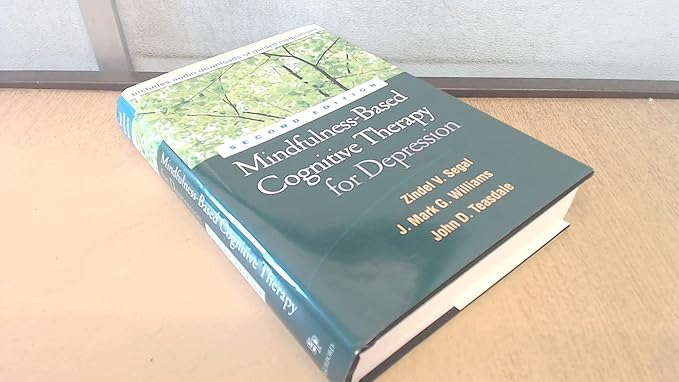
Mindfulness-Based Cognitive Therapy for Depression
Influence on Contemporary and Future Psychological Research
- Mindfulness and Clinical Psychology: Teasdale’s work on MBCT has had a profound impact on the field of clinical psychology, particularly in the treatment of depression and anxiety disorders. His research has inspired a surge of studies on the integration of mindfulness into traditional therapeutic approaches, leading to the development of numerous mindfulness-based interventions for mental health.
- Cognitive Science and Emotional Processing: Teasdale’s contributions to the understanding of cognitive processing in emotional regulation have influenced contemporary research in cognitive science. His dual-mode theory of thinking has prompted further investigations into how different cognitive modes contribute to emotional experiences, with implications for both therapy and emotional resilience.
- Depression Relapse Prevention: Teasdale’s research on depression relapse prevention has shaped the field of psychiatric research. His work has led to the widespread use of MBCT in preventing depression relapse, with ongoing studies exploring its application to other mental health disorders, including bipolar disorder, eating disorders, and PTSD.
- Neuroscience of Mindfulness: Teasdale’s focus on mindfulness and its effects on the brain has inspired research in neuroscience. Studies on the neural mechanisms of mindfulness have expanded, with researchers investigating how MBCT alters brain function in areas related to attention, emotional regulation, and cognitive control.
- Holistic Approaches to Mental Health: Teasdale’s integrative approach to therapy, combining cognitive techniques with mindfulness practices, has influenced the development of more holistic mental health interventions. His work continues to inspire research on how cognitive-behavioral and mindfulness-based therapies can be integrated to improve mental health outcomes.
Psychologists and Educators Influenced by John Teasdale

- Zindel Segal: A co-developer of MBCT, Segal’s work on mindfulness-based therapies was heavily influenced by Teasdale’s research on cognitive vulnerability and depression relapse. Together, they developed an evidence-based approach to preventing depression.
- Mark Williams: Another collaborator in the development of MBCT, Williams has continued to expand on Teasdale’s work, focusing on the role of mindfulness in treating anxiety and stress-related disorders. Williams has authored several books on mindfulness-based interventions.
- Jon Kabat-Zinn: While Kabat-Zinn’s Mindfulness-Based Stress Reduction (MBSR) inspired Teasdale, their collaboration also influenced Kabat-Zinn’s work. Teasdale’s integration of cognitive therapy with mindfulness broadened the applications of MBSR beyond stress management to treating clinical depression.
- Richard Davidson: A neuroscientist specializing in the effects of mindfulness on the brain, Davidson’s research has been shaped by Teasdale’s work on mindfulness and emotional regulation. Davidson has conducted numerous studies on how mindfulness practices influence brain activity in regions associated with emotional processing.
Impact on Psychology
- Influence on Modern Thought: John Teasdale’s work on Mindfulness-Based Cognitive Therapy (MBCT) has fundamentally transformed the treatment of depression and emotional disorders. His integration of mindfulness practices with cognitive therapy has shifted the focus from simply challenging negative thoughts to fostering greater awareness and acceptance of thoughts and emotions. This approach has provided a more holistic framework for understanding and treating mental health conditions, emphasizing the role of attention, acceptance, and non-judgmental awareness in improving emotional well-being. Teasdale’s theories continue to influence contemporary psychology, particularly in the areas of mindfulness, emotional regulation, and cognitive science.
- Legacy and Recognition: Teasdale’s contributions have earned him numerous accolades within the field of psychology, particularly for his work on MBCT. His research has been widely cited in studies on cognitive therapy and mindfulness-based interventions, and his work has been instrumental in shaping the development of third-wave cognitive therapies. Teasdale’s legacy is evident in the widespread adoption of MBCT in clinical practice, where it continues to be used as a highly effective treatment for preventing depression relapse and improving mental health outcomes. His work remains influential in both academic psychology and clinical settings, ensuring his lasting impact on the field.
Conclusion
John Teasdale’s pioneering work on Mindfulness-Based Cognitive Therapy (MBCT) has had a profound and lasting impact on the treatment of depression and the broader field of mental health interventions. By integrating mindfulness practices with cognitive therapy, Teasdale provided a new therapeutic framework for preventing relapse in depression and enhancing emotional well-being. His enduring legacy continues to shape contemporary psychological research and clinical practice, particularly in the areas of mindfulness, cognitive therapy, and emotional regulation.
Bibliography
- Teasdale, J. D., Segal, Z. V., & Williams, J. M. (2000). Prevention of Relapse/Recurrence in Major Depression by Mindfulness-Based Cognitive Therapy. Journal of Consulting and Clinical Psychology.
- Teasdale, J. D., & Barnard, P. J. (1993). Affect, Cognition, and Change: Remodelling Depressive Thought. Lawrence Erlbaum Associates.
- Williams, J. M. G., Teasdale, J. D., Segal, Z. V., & Kabat-Zinn, J. (2007). The Mindful Way Through Depression: Freeing Yourself from Chronic Unhappiness. Guilford Press.
- Teasdale, J. D. (1999). Emotional Processing, Three Modes of Mind, and the Prevention of Relapse in Depression. Behaviour Research and Therapy.
- Segal, Z. V., Teasdale, J. D., & Williams, J. M. G. (2002). Mindfulness-Based Cognitive Therapy for Depression: A New Approach to Preventing Relapse. Guilford Press.
- Teasdale, J. D., & Moore, R. G. (1993). Cognitive Vulnerability to Persistent Depression: Processes and Interventions. Journal of Abnormal Psychology.
- Teasdale, J. D. (1988). Cognitive Therapy for Depression: A Review and Critique. Behaviour Research and Therapy.
- Kabat-Zinn, J., Segal, Z. V., Williams, J. M. G., & Teasdale, J. D. (2002). Mindfulness Training and the Prevention of Depression Relapse. Journal of Cognitive Psychotherapy.
- Teasdale, J. D. (1997). The Relation Between Emotion and Cognition: A Functional Analysis. Cognition and Emotion.
- Teasdale, J. D. (2003). Mindfulness and Emotional Regulation: Taking Back Control of the Mind. Cognitive Therapy and Research.
